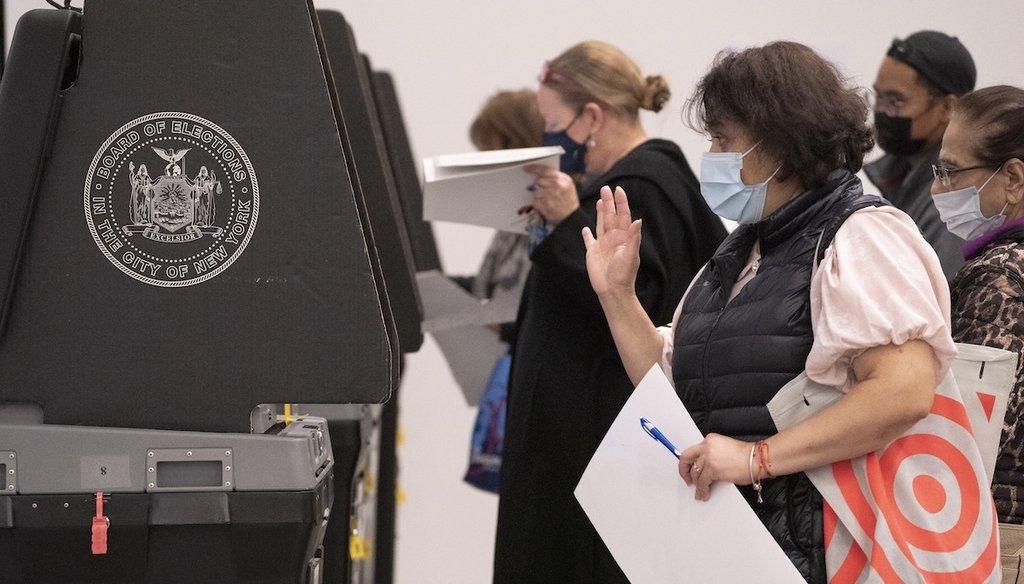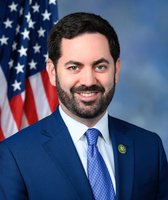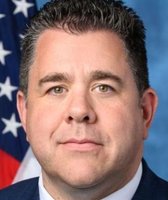Stand up for the facts!
Our only agenda is to publish the truth so you can be an informed participant in democracy.
We need your help.
I would like to contribute

Voters cast their ballots using electronic counting machines at a polling site inside The Shed arts center, Nov. 8, 2022, in the Hudson Yards neighborhood of the Manhattan borough of New York. (AP)
If Your Time is short
-
Minors are required to get parental consent for medical care in most cases, including gender-affirming hormone replacement therapy and surgery.
-
If Prop 1 passes, parental consent requirements would not change, experts told us.
The Coalition to Protect Kids - NY is campaigning across New York state against a constitutional amendment that would strengthen anti-discrimination protections. The group says Proposition 1, also known as the Equal Rights Amendment, would do far more, including infringing on parental rights.
"The ERA could empower courts to allow minors to undergo irreversible medical procedures, such as gender-transition surgeries, without parental consent," the group claims.
Would Prop 1 really do this?
The proposed amendment on the ballot for voters statewide this fall would strengthen anti-discrimination protections that already exist by adding them to the New York State Constitution. These protections would become more durable because they could not be reversed by lawmakers in a single session of the legislature. Because an amendment requires approval in two successive legislative sessions, and passage in a public referendum, the new protections would be more difficult to change, and are viewed by the courts as having greater authority.
The amendment would add ethnicity, national origin; age; disability; sex, including sexual orientation; gender identity; gender expression; pregnancy; pregnancy outcomes; and reproductive healthcare and autonomy to a list of classes protected from discrimination. Protections exist in the constitution for race, color, creed and religion.
Described as an "Amendment to Protect Against Unequal Treatment," the measure does not mention "equal rights," but mentions "equal protection."
We cannot predict how courts would interpret this amendment, so we are not rating this on our Truth-O-Meter. But experts told us that the amendment would not allow doctors to treat minors whose parents had not consented.
New York state does not allow minors to obtain medical care without parental consent in most cases, and this includes gender-affirming care. There are exceptions to parental consent requirements for minors seeking reproductive care, including abortion, care after a sexual assault, and prevention or treatment of sexually-transmitted diseases. Some mental health services and treatment for substance abuse are also allowed. There are also exceptions for minors who are emancipated from their parents, are pregnant or are parents themselves, or are homeless or have run away. The amendment would not change these rules, experts told us.
The state’s prohibition against providing gender-affirming care to minors without parental consent includes hormone replacement therapy and surgery, said Dr. Elana Tal, a clinical assistant professor at the Jacobs School of Medicine and Biomedical Sciences at the University at Buffalo.
There is nothing about parental consent in the proposition, said Tal, who provides gender-affirming care. "It simply protects LGBTQ+ people from discrimination."
There are cases where minors have gender-affirming surgery.
"Their parents have to be involved through the entire process," Tal said.
The New York City Bar Association, a group of lawyers and law students, said that Prop 1 would not affect parental consent laws for gender-affirming care. "Prop 1 does not address parental rights, which are governed by other developed areas of state and federal law," the group said.
Proponents of Prop 1 called the claim that the measure infringes on parental rights a distraction from abortion opponents. The amendment would strengthen abortion rights, which are popular in the state, they said. The amendment does not mention abortion, but the New York City Bar Association has said that abortion is "unequivocally covered." Meanwhile, one legal expert told WAMC that he is skeptical that the amendment would strengthen abortion rights.
"The truth is, New York law already requires parental consent for minors to undergo any gender-affirming care procedure, and Prop 1 doesn’t alter that," state Sen. Liz Krueger, D-Manhattan, who sponsored the bill, told PolitiFact.
Jennifer Weiss-Wolf, executive director of the Birnbaum Women's Leadership Center at NYU School of Law, told Gothamist that making a claim that children will be treated differently in medical settings is part of a political strategy.
"There are laws already on the books in the state that this is not going to change," she said.
The Coalition to Protect Kids - NY did not respond to our requests for evidence of their claim.
(Update Oct. 22: The Coalition to Protect Kids - NY sent PolitiFact New York a statement after this story was published. In part, it states: "Prop One empowers courts to strike down restrictions on fundamental rights, including parental notice or consent, by applying strict judicial scrutiny. ... Prop One carves out fundamental rights for minors that are likely to clash with parental rights, both federal and state. Prop One transfers the power of parents to the courts, where clashes occur, and provides courts with a solid constitutional framework to rule against parents regarding the gender-transitioning of their minor children, medically and non-medically.")
Opponents of Prop 1, including the state Republican Party, have said that courts could interpret the amendment as protecting the rights of minors who seek gender-affirming care.
A civil rights lawyer who has worked on conservative causes told the Times-Union of Albany that the courts could interpret the amendment’s age discrimination protections as being more important than parental rights.
Parents are "not going to win if they challenge that because the constitution in New York state will now say that you can’t discriminate against your child no matter how little they are," Bobbie Anne Cox told the newspaper.
Proponents of Prop 1 said that other states also have age discrimination protections in their constitutions, but that doesn’t necessarily mean that the state starts treating minors differently with regard to age-based prohibitions. In Louisiana, where the constitution protects against age discrimination, state courts have upheld laws prohibiting minors from buying alcohol and lottery tickets.
"Courts are well versed in how to balance government interests and the prevention of discrimination," said Katharine Bodde, the interim co-director of policy, New York Civil Liberties Union.
Our Sources
Coalition to Protect Kids - NY website, FAQ, undated.
Phone interview, Dr. Elana Tal, clinical assistant professor, Department of OBGYN, Jacobs School of Medicine and Biomedical Sciences, University at Buffalo, Sept. 26, 2024.
New York State Board of Elections, Proposal Number 1, An Amendment, Aug. 27, 2024.
Phone interview, Elana Redfield, federal policy director at the Williams Institute at the University of California at Los Angeles, Sept. 13, 2024.
Phone interview, Katharine Bodde, interim co-director of policy, New York Civil Liberties Union, Sept. 26, 2024.
City Journal, "A Radical Measure," April 8, 2024.
Mother Jones, "How Abortion Foes Are Using Transphobia to Derail New York’s Equal Rights Amendment," October 4, 2024.
New York State Republican Party, "Fact Sheet: Proposal #1 (Prop 1)."
New York Civil Liberties Union, "What Types of Care Can You Receive Without Parental Consent?" 2018.
New York State Health Department, "Frequently Asked Questions: Guidance on a Minor’s ability to consent to Medical, Dental, Health and Hospital-related Services," June 2023.
Syracuse.com, "Poll: New York voters strongly support new laws on guns, abortion," June 16, 2022.
Gothamist, "Far right spins NY abortion rights amendment as ploy to get trans kids in girls' sports," Aug. 28, 2024.
Tulane Law Review, "Manuel v. Louisiana: The Louisiana Supreme Court Determines that Raising the Legal Drinking Age to Twenty-One Is Not Age Discrimination under Louisiana's Equal Protection Clause," 1997.
Louisiana Supreme Court decision, Latour, et. al., vs. State of Louisiana, Jan. 29, 2001
Albany Times-Union, "NY voters will decide Proposition 1. What would it actually do?," Oct. 6, 2024.
WXXI, "New York's ‘Prop One’ is getting pulled into the partisan divide. What would it actually do?," Oct. 9, 2024.
New York State Office of Children and Family Services, Medical Consent for Youth Under 18 and Experiencing Homelessness, undated.
LGBTQNation, "Fact Check: Will New Yorkers vote on letting kids transition without parental consent this year?," Sept. 24, 2024.
New York City Bar Association, "Prop 1 (New York Equal Rights Amendment): What the Amendment Will and Won’t Do," Oct. 9, 2024.
Statement, state Sen. Liz Krueger, Sept. 27, 2024.
Coalition to Protect Kids-NY, emailed statement, Oct. 21, 2024.














































